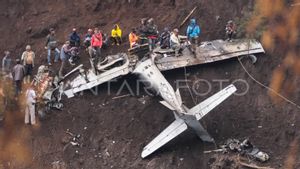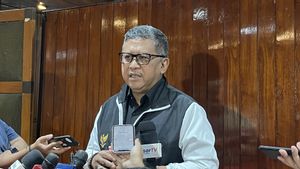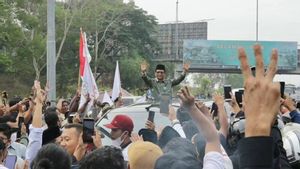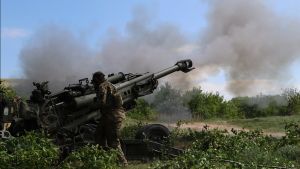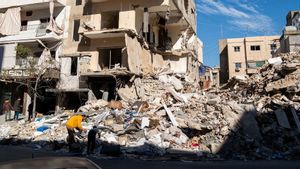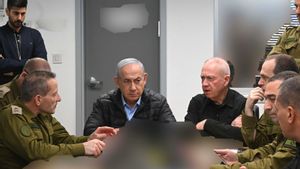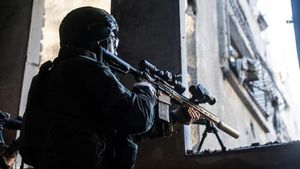JAKARTA - The United Nations said Israel's decision to step up bomb attacks in the southern part of the Gaza Strip "violated" previously made guarantees the region would be a haven for those fleeing violence.
Natalie Boucly, acting deputy commissioner general of the United Nations Palestinian refugee agency, told the General Assembly that "there is no safe place in Gaza" amid the continuing Israeli attacks in the coastal bag.
"Israeli authorities have asked people to move south. However, there is no part of the Gaza Strip that was not bombed," the UNRWA senior official said.
"The military increase in the south in recent days has violated the guarantees people received that moving south would be safe."
Israel's Chief of General Staff Herzi Halevi said on Friday morning that after "nearly dismantling the Hamas military system" in northern Gaza, the Israeli military would now seek to target larger areas.
The Israeli military distributed leaflets in several areas in the city of Khan Younis, southern Gaza, asking residents to leave their homes. Further military radio stated that this was an important step indicating an estimated expansion of Israeli military operations towards the south of the Gaza Strip.
More than 1.5 million Gazans have fled their homes, many of whom fled to the south, according to UN data. Hundreds of thousands remain in the north where intense fighting continues, and where only one in 24 hospitals in the region operates, namely Al-Ahli.
Since Israel began bombarding Gaza after cross-border Hamas attacks on October 7, at least 11,500 Palestinians have been killed, including more than 7,800 women and children, and more than 29,200 others injured, according to the region's Ministry of Health.
"However, this figure is likely higher given the fact that many bodies buried under the rubble need time to be found," said Martin Griffith, coordinator of UN humanitarian affairs.
Nearly half of the buildings living in Gaza were destroyed or destroyed, according to UN data as Israel continued to carry out bomb attacks by air and land.
The nature and scale of civilian losses are characteristic of the widespread use of explosive weapons in densely populated areas, Griffiths said.
He stressed that providing assistance only through the Rafah border with Egypt was "logistically impossible", and called on Israel to grant permission to use the Kerem SALom border where 60 percent of international aid was channeled before the conflict.
SEE ALSO:
Amid mass destruction, the Israeli siege also cut off Gaza to get fuel, electricity and water, and reduce aid deliveries by only a fraction of conditions before the break-up of hostilities.
Dennis Francis, President of the UN General Assembly, repeated calls from the international community for an immediate ceasefire, and stressed, "This petition is not only from me, this is a call that resonates from the entire General Assembly itself."
"We need safe and unobstructed humanitarian access, now. We demand Hamas to return the hostages unconditionally, now. We demand the fighters act fully in accordance with international law, including the law of war, at all times, and under all circumstances," Francis said in his opening speech.
In the October 7 attack, Hamas took more than 200 people to the Gaza Strip as hostages.
The English, Chinese, Japanese, Arabic, and French versions are automatically generated by the AI. So there may still be inaccuracies in translating, please always see Indonesian as our main language. (system supported by DigitalSiber.id)




